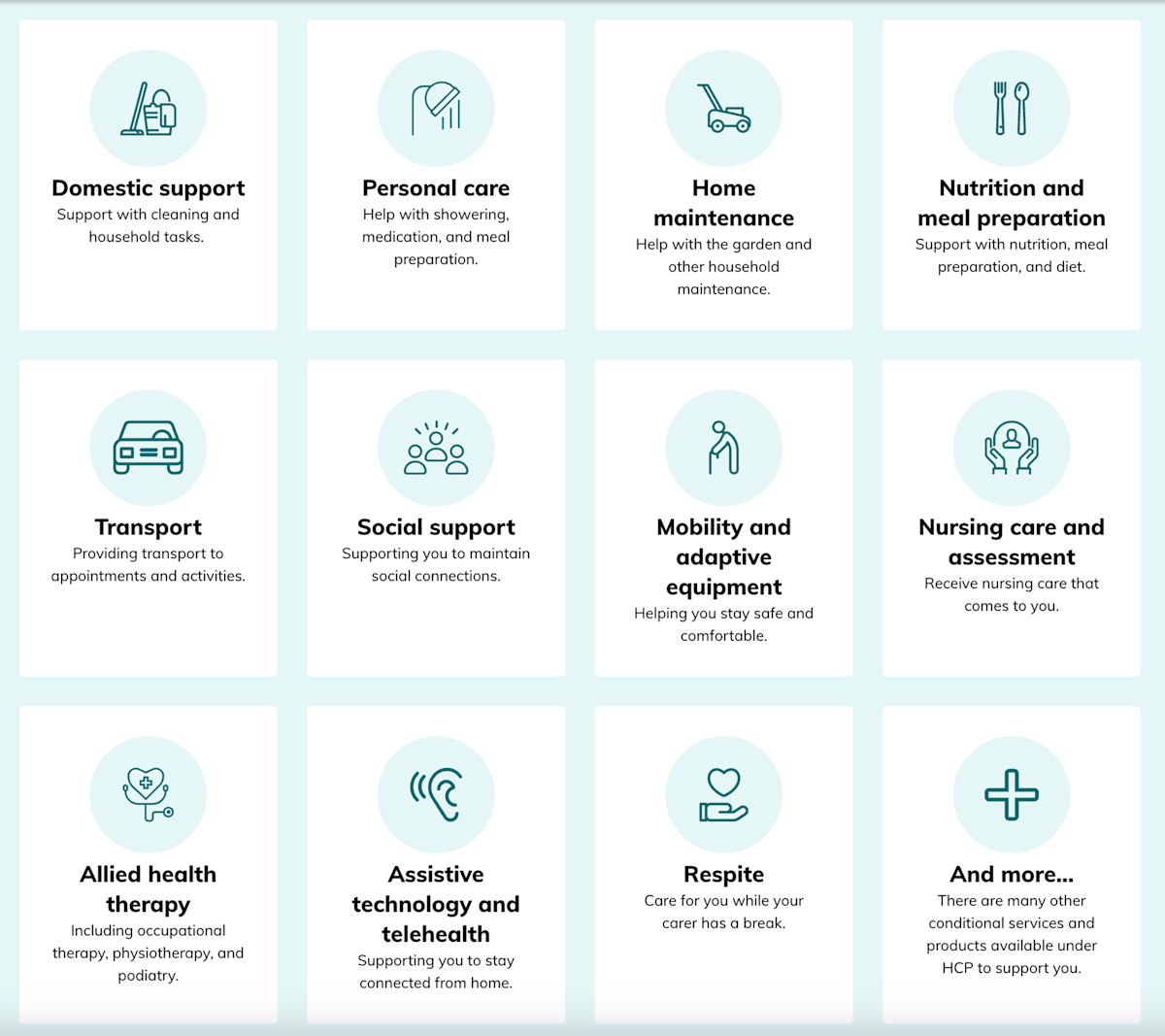The Relevance of Home Treatment in Disability Support: Checking Out NDIS Registered Solutions
Home treatment is an essential facet of handicap support, particularly within the framework of NDIS signed up remedies. It gives important services that foster self-reliance and enhance general high quality of life for people with specials needs. By supplying tailored assistance, these solutions accommodate unique demands and choices. Nonetheless, the efficiency of home care relies upon continuous interaction with NDIS coordinators. This vibrant connection exposes deeper understandings right into the transformative capacity of tailored assistance. What successes and obstacles emerge in this progressing landscape?
Comprehending the Function of Home Care in Handicap Assistance
Home care plays a vital function in the assistance of people with impairments, providing substantial solutions that promote freedom and improve lifestyle. It encompasses a series of support tailored to satisfy the distinct demands of each person, including individual care, family tasks, and mobility assistance. Trained caretakers provide friendship and emotional assistance, promoting purposeful connections that combat social isolation.Furthermore, home treatment solutions are created to adapt as scenarios transform, ensuring that people get the suitable degree of treatment throughout their lives. This versatility permits the assimilation of new treatments or innovations that might develop. By focusing on the individual's routines and choices, home treatment empowers them to preserve control over their day-to-day activities. Inevitably, the role of home care in handicap support is necessary, as it not just offers sensible assistance however additionally affirms the dignity and autonomy of those it offers.

Benefits of Personalized Support in your home
Individualized aid at home offers numerous benefits tailored to individual needs - support at home. By producing personalized support plans, caregivers can significantly enhance the independence of individuals with disabilities. This approach not only advertises freedom however also promotes a sense of self-respect and self-regard
Customized Assistance Plans
Tailored assistance strategies play a crucial duty in improving the lifestyle for individuals with impairments. These personalized strategies are created to attend to the special needs and preferences of each person, making certain that assistance services straighten with their certain goals and lifestyle. By entailing clients in the preparation procedure, customized support strategies promote a feeling of possession and empowerment. This individualized strategy enables caregivers to supply relevant aid, whether it includes daily living activities, social interaction, or skill growth. Additionally, customized plans can adjust to altering circumstances, showing the evolving demands of the individual. Inevitably, this customized assistance enhances not just daily working yet also psychological wellness, reinforcing the value of a customized strategy in disability assistance services.
Improved Freedom Opportunities
People with disabilities profit considerably from individualized assistance in the house, as it promotes improved self-reliance opportunities. Tailored support permits people to take part in everyday tasks with greater confidence and freedom. Home treatment solutions can include support with individual treatment, dish preparation, and home administration, allowing customers to maintain their preferences and routines. This individualized strategy cultivates a sense of control, empowering individuals to choose that mirror their one-of-a-kind needs and goals. Additionally, the comfort of home produces a familiar atmosphere, minimizing anxiousness and boosting psychological health. Overall, customized support not only supports vital everyday jobs yet also cultivates a much more independent way of life, enabling individuals with specials needs to prosper within their neighborhoods and accomplish higher personal fulfillment.
Review of NDIS Registered Home Care Services
NDIS signed up home treatment solutions include various kinds of assistance customized to people with impairments (home care providers). Understanding qualification and accessibility to these services is vital for making the most of the benefits of NDIS assistance. This introduction will highlight the vital facets of home care under the NDIS structure
Types of Home Care
Home treatment services play a necessary role in sustaining individuals with impairments, offering a series of choices to meet varied requirements. NDIS signed up home care solutions include individual care, which aids individuals with daily tasks like bathing and clothing. Domestic aid assists keep a clean and secure living atmosphere, while reprieve care provides short-lived relief for key caregivers. Neighborhood gain access to solutions enable participation in social and leisure activities, promoting freedom and link. Furthermore, nursing care delivers clinical support in the house, making sure health requirements are met. Treatment services, consisting of job-related and physical rehabilitation, aid in rehab and skill advancement. Together, these different sorts of home care add greatly to boosting the high quality of life for individuals with specials needs.
Eligibility and Access
Just how can one access the vital home care solutions provided under the NDIS? To certify for these services, people need to satisfy certain qualification criteria laid out by the National Handicap Insurance Coverage System. Candidates should demonstrate a significant and permanent special needs that impacts their day-to-day functioning. The process begins with submitting an Access Request Kind, which consists of documentation of the impairment and its influence on life. As soon as accepted, people obtain a customized plan describing their called for supports, consisting of home treatment solutions. These solutions can be accessed through NDIS-registered service providers, who need to adhere to stringent quality and safety standards. Comprehending these actions assurances individuals can efficiently navigate the NDIS system to acquire the required support for their home treatment demands.
Advantages of NDIS Support
Accessing important assistance with registered services provides people with disabilities a transformative chance to boost their lifestyle. NDIS signed up home care services offer tailored help, guaranteeing that each participant's distinct requirements are met. These solutions encompass a wide variety of assistances, including personal treatment, mobility support, and healing solutions, all developed to advertise freedom and well-being. Furthermore, signed up carriers stick to extensive high quality requirements, assuring a high degree of care and safety and security. Participants likewise take advantage of increased versatility, enabling them to select solution shipment techniques that ideal match their way of livings. Eventually, NDIS support promotes a feeling of area and empowerment, making it possible for people with disabilities to involve even more fully in their everyday lives and accomplish individual objectives.
Customizing support to private requirements is important in handicap care, as everyone's choices and conditions differ considerably. The National Impairment Insurance Policy Scheme (NDIS) stresses the importance of individualized treatment plans that reflect the special objectives and requirements of each individual. This approach allows caretakers to concentrate on specific areas such as flexibility aid, daily living skills, and emotional support, guaranteeing that solutions are reliable and pertinent.
Enhancing Lifestyle Through Home Treatment
While numerous people with disabilities face one-of-a-kind obstacles, home care services can considerably improve their quality of life by giving tailored support in acquainted environments. These solutions promote freedom, allowing people to participate in daily activities that promote self-confidence and personal satisfaction. Through personalized treatment plans, home care companies can attend to particular needs, whether it entails support with individual hygiene, meal prep work, or medicine management.Moreover, home treatment facilitates social interactions, encouraging connections with friends and family, which are essential for psychological well-being. By remaining in their very own homes, individuals experience a feeling of security and connection, lowering anxiety related to strange atmospheres. In addition, caregivers can use friendship, helping to alleviate feelings of seclusion. Generally, home care not only addresses physical needs however additionally improves the psychological and social dimensions of life for people with impairments, eventually resulting in a much more meeting and enjoyable existence.
Browsing the NDIS for Home Treatment Solutions
Guiding with the National Handicap Insurance Plan (NDIS) can substantially impact the efficiency of home treatment remedies for people with disabilities. Comprehending the NDIS structure is crucial for participants seeking proper financing for home find treatment solutions. This procedure starts with identifying individual needs and goals, which assists in tailoring support plans that line up with the participant's requirements.Navigating the NDIS includes familiarizing oneself with the eligibility criteria, application treatments, and the planning process. Individuals need to involve with NDIS planners to discuss their certain conditions and wanted outcomes. This dialogue ensures that the needed home treatment solutions, such as personal care, support with daily living, and therapeutic support, are included in their plans.Furthermore, remaining upgraded on NDIS plans and any type of changes in funding can empower individuals to make enlightened options regarding their home care options, inevitably boosting their independence and lifestyle.
Success Stories: Empowering Lives Through Home Treatment
Home treatment services have changed the lives of lots of individuals with impairments, demonstrating the extensive influence of individualized support. Sarah, a young female with analytical palsy, gained freedom with tailored home treatment assistance that allowed her to handle everyday jobs and take part in area tasks. Similarly, John, that has autism, gained from a dedicated caretaker that assisted him develop social abilities and foster purposeful connections, enhancing his lifestyle. These success stories highlight exactly how home treatment not only satisfies physical demands however additionally promotes emotional wellness. Families report enhanced satisfaction, knowing their liked ones obtain specialist and compassionate support in a familiar setting. As these instances illustrate, home care equips people with disabilities to prosper, urging self-sufficiency and boosting overall life contentment. The transformative effects of such services highlight the relevance of home treatment in the more comprehensive context of disability assistance.

Regularly Asked Questions
Just How Can I Locate NDIS Registered Home Treatment Providers in My Area?
To discover NDIS registered webpage home care service providers in a particular area, individuals can visit the NDIS website, utilize the provider finder device, or call regional special needs support organizations for referrals and advice.
What Credentials Should Home Treatment Workers Possess for Disability Assistance?
Home treatment workers for disability assistance must preferably possess qualifications such as a Certification III in Person Support, pertinent experience, solid communication abilities, compassion, and understanding of disability civil liberties and person-centered treatment practices.
Are There Any Expenses Associated With NDIS Registered Home Treatment Providers?
Expenses linked with NDIS registered home treatment services can vary based upon individual demands, company, and the level of care called for. Participants must review their plans to recognize particular financing and possible out-of-pocket expenditures.
Can Home Treatment Services Accommodate Certain Cultural or Language Needs?

Just How Often Can I Change My Home Treatment Assistance Strategy?
People can commonly transform their home treatment assistance plan as needed, frequently at least yearly or upon significant life changes. Regular reviews assure that the strategy stays appropriate and efficiently addresses developing personal situations and needs. Trained caretakers supply friendship and emotional support, cultivating purposeful connections that combat social isolation.Furthermore, home treatment solutions are developed to adapt as conditions alter, making sure that individuals obtain the proper level of care throughout their lives. Home treatment solutions can include aid with individual care, dish preparation, and household monitoring, allowing clients to keep their preferences and regimens. NDIS signed up home care services include individual care, which helps individuals with everyday activities like showering and dressing. With customized treatment plans, home treatment companies can address certain needs, whether it entails support with individual hygiene, this hyperlink dish preparation, or medicine management.Moreover, home treatment helps with social communications, motivating links with family and good friends, which are vital for psychological well-being. Expenses associated with NDIS registered home treatment solutions can vary based on private needs, service carriers, and the level of care needed.